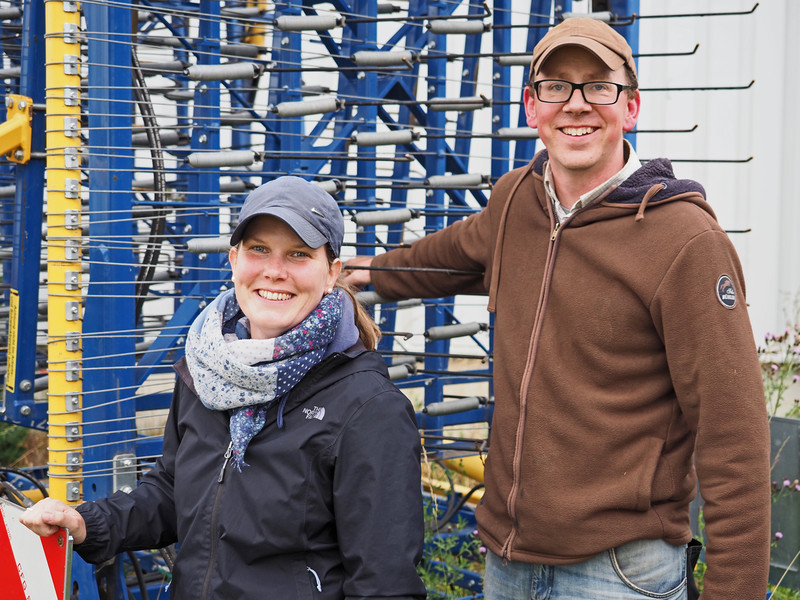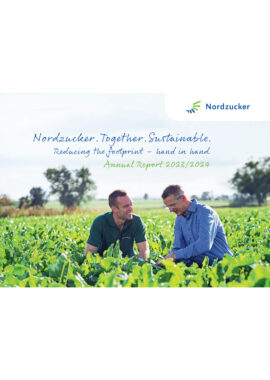
Nordzucker Post 04/2020 - 10 August 2020
Interview on an organic farm
In a small series, we would like to introduce you to various agricultural businesses in the Nordzucker Post. The diversity in the agricultural sector and the contractual partners with Nordzucker is always apparent.
The start-up of this series is an organic farm in the Hildesheimer Börde: BioBördeLand GmbH. Matthias Schulte has interviewed two of the company’s partners, Frauke Brauer-Siebrecht and Markus Blomberg.
What was the reason you decided to run your business ecologically?
Markus Blomberg: We had the idea of bringing the ecological and economic aspects of an agricultural business closer together. And when I look back, we have already succeeded in many areas. Of course, we also saw market opportunities for our products. Ecology and economy.
Frauke Brauer-Siebrecht: In addition to these aspects, the further development of the farms also played a role. Coming from a salaried position, we had to do something to keep our operations, which until then had operated conventionally, viable. And this was exactly the way we wanted to go, and it offered a perspective.
What is the exciting thing about organic farming?
Frauke Brauer-Siebrecht: It never gets boring. Nor do we have this pronounced peak in the course of the year, comparable to a conventional farm, which has its peak in the grain harvest. When we are finished with one step, with one fruit, the next one is already coming. In the course of the year the steps are more evenly distributed.
Markus Blomberg: Our main business is already spread over two cultures: carrots and potatoes. And the carrots are grown in such a way that they can be harvested over as long a period as possible. Storage is difficult and the carrots should always be fresh. The cereals, on the other hand, are rather easy to store. And of course we are always looking for interesting new crops. So we are never ready.
What is special about this year?
Markus Blomberg: Unfortunately, this year the carrot has been attacked by a pest for which there is no experience in our regions. The larvae damage the roots and that is of course not nice.
Frauke Brauer-Siebrecht: We are also looking for solutions to the new problem with consultants. Fortunately, only part of the area is affected, but who knows how the pest develops and what will it be next year? But the sugar beets, which we have been growing on 25 hectares for several years, are growing well this year. However, more hours of work were needed this year to control the weeds. We are of course observing the further development of hoeing robots. So it remains exciting!


